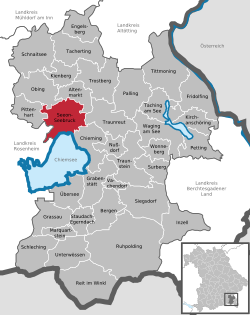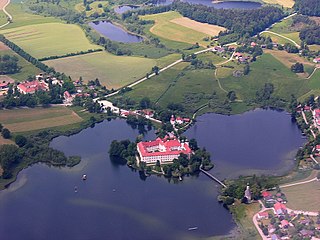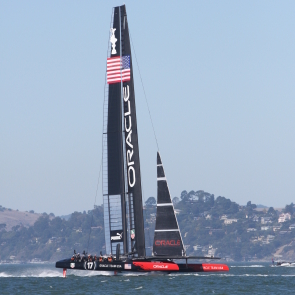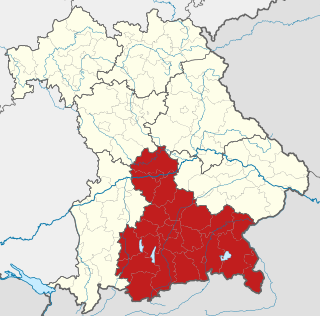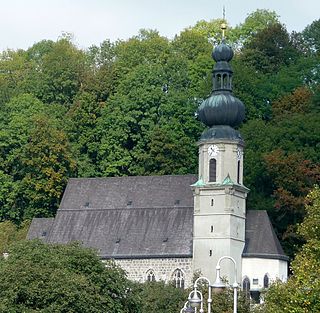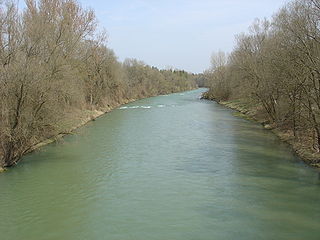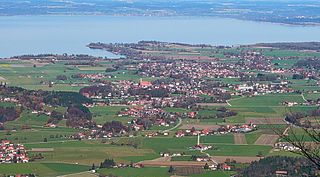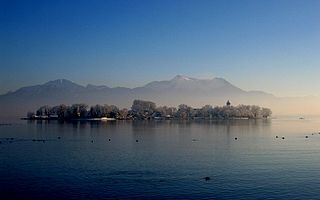Seeon-Seebruck | |
|---|---|
 | |
| Coordinates: 47°58′N12°28′E / 47.967°N 12.467°E Coordinates: 47°58′N12°28′E / 47.967°N 12.467°E | |
| Country | Germany |
| State | Bavaria |
| Admin. region | Oberbayern |
| District | Traunstein |
| Government | |
| • Mayor | Bernd Ruth (CSU) |
| Area | |
| • Total | 47.92 km2 (18.50 sq mi) |
| Elevation | 537 m (1,762 ft) |
| Population (2017-12-31) [1] | |
| • Total | 4,591 |
| • Density | 96/km2 (250/sq mi) |
| Time zone | CET/CEST (UTC+1/+2) |
| Postal codes | 83358, 83370 |
| Dialling codes | 08667 |
| Vehicle registration | TS |
| Website | www.seeon-seebruck.de |
Seeon-Seebruck is a municipality in the district of Traunstein in southern Bavaria in Germany.
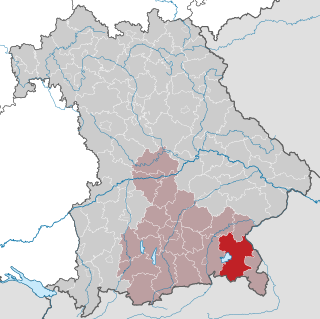
Traunstein is a Landkreis (district) in the southeastern part of Bavaria, Germany. Neighboring districts are Mühldorf, Altötting, the Austrian states Upper Austria and Salzburg, the district Berchtesgadener Land, the Austrian states of Salzburg and Tyrol, and the district Rosenheim.

Bavaria, officially the Free State of Bavaria, is a landlocked federal state of Germany, occupying its southeastern corner. With an area of 70,550.19 square kilometres, Bavaria is the largest German state by land area comprising roughly a fifth of the total land area of Germany. With 13 million inhabitants, it is Germany's second-most-populous state after North Rhine-Westphalia. Bavaria's main cities are Munich, Nuremberg and Augsburg.

Germany, officially the Federal Republic of Germany, is a country in Central and Western Europe, lying between the Baltic and North Seas to the north, and the Alps, Lake Constance and the High Rhine to the south. It borders Denmark to the north, Poland and the Czech Republic to the east, Austria and Switzerland to the south, France to the southwest, and Luxembourg, Belgium and the Netherlands to the west.

